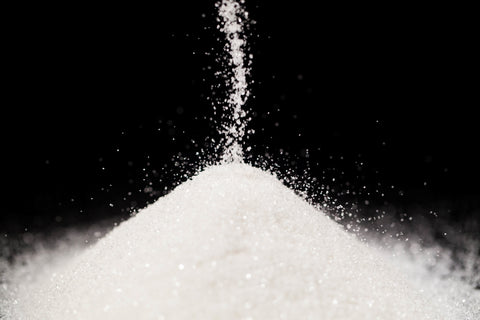Carbohydrates (also known as carbs or carbohydrates), along with fats and proteins, are the macronutrients in our diet and the primary sources of dietary energy.
Carbohydrates are composed of three main types : simple sugars, complex sugars, and fibers.
Simple sugars : Sugar is a simple carbohydrate extracted from various sources such as sugarcane, sugar beets, or fruits. Simple sugars include monosaccharides like glucose, fructose, and disaccharides like sucrose (table sugar), maltose, and lactose (milk sugar). Simple sugars are the most basic forms of carbohydrates. They naturally occur in sweet foods like fruits, honey, and maple syrup. Simple sugars are rapidly absorbed by our bodies, providing an immediate source of energy and causing a significant spike in blood sugar levels.
Added sugars, often referred to as refined sugar, are the sugars that are added to foods and beverages during their preparation. Foods high in added sugar include sweetened drinks, pastries, candies, and desserts.
Complex sugars : Complex sugars, also known as polysaccharides, are composed of multiple glucose units bonded together, unlike simple sugars like glucose and fructose. Foods rich in complex sugars include whole grains like whole wheat, brown rice, oats, as well as legumes such as lentils, beans, and peas. Starchy vegetables like potatoes and sweet potatoes also contain complex sugars. The complex structure of these sugars slows down their digestion compared to simple sugars. When we consume foods high in complex sugars, our bodies need to break down the long chains of glucose into individual units before they can be absorbed into the bloodstream. This slower digestion means that complex sugars provide a sustained and prolonged release of energy, avoiding blood sugar spikes. It is recommended to prioritize complex sugars over simple sugars in our daily diet. Foods rich in complex sugars are often more nutritious and offer better overall nutritional value due to their fiber, vitamin, and mineral content. They are also generally less processed than foods high in simple sugars.
Fiber : Dietary fiber, although also considered a carbohydrate, is different from other forms of carbohydrates such as complex sugars and simple sugars. Fiber is a component of plant-based foods that cannot be digested by our bodies.
There are two types of dietary fiber : soluble fiber and insoluble fiber. Soluble fiber dissolves in water to form a gel-like substance, while insoluble fiber does not dissolve in water and retains its intact form.
Fiber-rich foods include fruits, vegetables, legumes, whole grains, nuts, and seeds. The fiber content of foods can vary, and it is recommended to consume a variety of fiber-rich foods to obtain the full benefits.
Dietary fiber plays an important role in our digestive health. It helps maintain regular bowel movements by increasing stool volume and promoting regular bowel movements. Fiber can also help prevent constipation by softening the stool.
Moreover, soluble fiber has the ability to form a viscous gel in the intestine. This can slow down the digestion and absorption of nutrients, contributing to a slower release of carbohydrates and helping maintain stable blood sugar levels. Soluble fiber can also help reduce blood cholesterol levels by binding to bile acids and promoting their elimination.
Dietary fiber can also help control appetite by providing a longer-lasting feeling of fullness. Since it takes more time to digest, fiber-rich foods can help prevent cravings and maintain a healthy body weight.
It is recommended to consume adequate amounts of dietary fiber daily. Fiber needs may vary depending on age, sex, and level of physical activity.
Carbohydrates are a broader group that encompasses simple sugars, complex sugars, and fiber. Carbohydrates provide energy to our bodies, while added sugar, due to its high calorie and sugar content, can contribute to health issues such as obesity, type 2 diabetes, and heart disease when consumed in excess.


